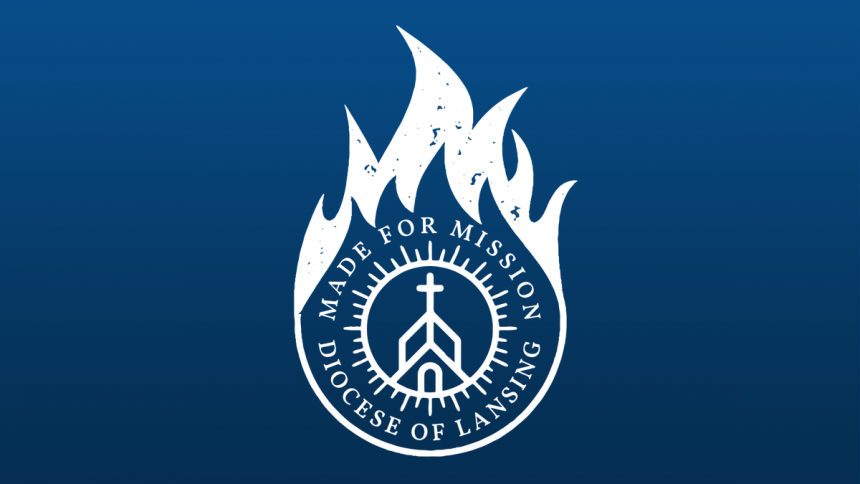
Dear Friend,
This Sunday parishes across the Diocese of Lansing will celebrate the Solemnity of the Epiphany, the great manifestation of Christ to the Gentiles as represented by the Magi and as recorded, uniquely, in the Gospel of Saint Matthew.
“When they saw the star, they rejoiced exceedingly with great joy; and going into the house they saw the child with Mary his mother, and they fell down and worshiped him.” (Matthew 2:11–12).
Led by faith and reason, the pilgrimage of these mysterious “wise men from the East” to the Christ Child in Bethlehem provides a template for the apostolic journey we need to undertake with others if we are to better fulfill the divine mission given to us by Jesus himself:
“Go therefore and make disciples of all nations, baptizing them in the name of the Father and of the Son and of the Holy Spirit, teaching them to observe all that I have commanded you.” (Matthew 28:19-20)
This is why, back in 2019, I asked Father Mathias Thelen of Saint Patrick in Brighton to lead a 14-person committee – consisting of both clergy and laity – in prayerfully discerning how our diocese can best realign our resources – personnel, property, financial, material – in order to further the mission of forming communities of missionary disciples who go announce the Gospel of Our Lord, Jesus Christ. Fittingly, this process was called Realign Resources for Mission.
At the end of a two-year process, the committee was able to provide me with a series of recommendations to help the 72 parishes of our diocese become more effective in our evangelistic mission. Those recommendations can probably be summed up in this one sentence:
“Healthy Parishes in the Diocese of Lansing are led by priests striving for health and holiness, equip and empower parish staff, make, and form missionary disciples and seek the lost and serve the poor.”
Of course, a healthy presbyterate is not the sole factor in making this vision happen but it is a sine qua non to revitalizing the local church in each area.
Initially, it was thought this vision could best be facilitated through our priests operating a shared pastorate over a group of parishes. This is what Canon 543 of the Code of Canon Law refers to as in solidum. However, we soon received word that Rome will not allow priests in solidum to be pastors of individual parishes.
What is more, our priests didn’t like the in solidum concept either preferring, instead, to maintain the traditional link between a pastor and his people, between the shepherd and his flock. This was all good feedback and has been duly incorporated into the implementation of the Realign Resources for Mission vision, a process we've entitled Made for Mission.
Hence the more recent move to 22 parish groups organized within 10 deanery territories with each led by a priest who is nominated as a dean. Canon 555 of the Code of Canon Law lays out nicely the responsibilities for a dean. These includes:
- To promote and coordinate common pastoral activity
- To ensure that local clerics lead a life in keeping with their state
- To ensure that local clerics perform their duties diligently
- To ensure that religious functions are celebrated according to liturgical prescripts
- To ensure that the beauty and elegance of churches and sacred furnishings are maintained carefully, especially in the Eucharistic celebration and custody of the Eucharist
- To ensure that, according to particular law, clerics attend lectures, theological meetings, or conferences
- To take care that spiritual supports are available to presbyters of his district and to show concern for those who are in difficult circumstances or beset by problems.
I have now selected the priests for this role through a consultative process involving the priests, the chancery staff as well as other trusted advisors. Click here to read the list of the new deans. Note: There is one one dean still to be appointed. That will, hopefully, come soon. Stay tuned. I kept in mind some important criteria for their selection.
For example, in his 1966 Motu Proprio on governing the Church, In Ecclesiae Sanctae, Pope Saint Paul VI states that deans are to be presbyters “quite outstanding for their learning and apostolic zeal,” and commentators generally agree that the dean ought to have social gifts, organizational skills, and pastoral experience.
Not only do I have confidence in each of these priests’ ability to fulfill his duties as dean, but they have the esteem of their brother priests as well. They have the gifts of leadership and teamwork needed to help grow our parishes into communities of missionary disciples who evangelize the local communities.
All these changes will come into effect on July 1, 2023. Hence, please pray for these men as they embark on this new endeavor for the sake of our diocese, parishes and people of God.
Yours in Christ,
+ Earl Boyea
Bishop of Lansing
